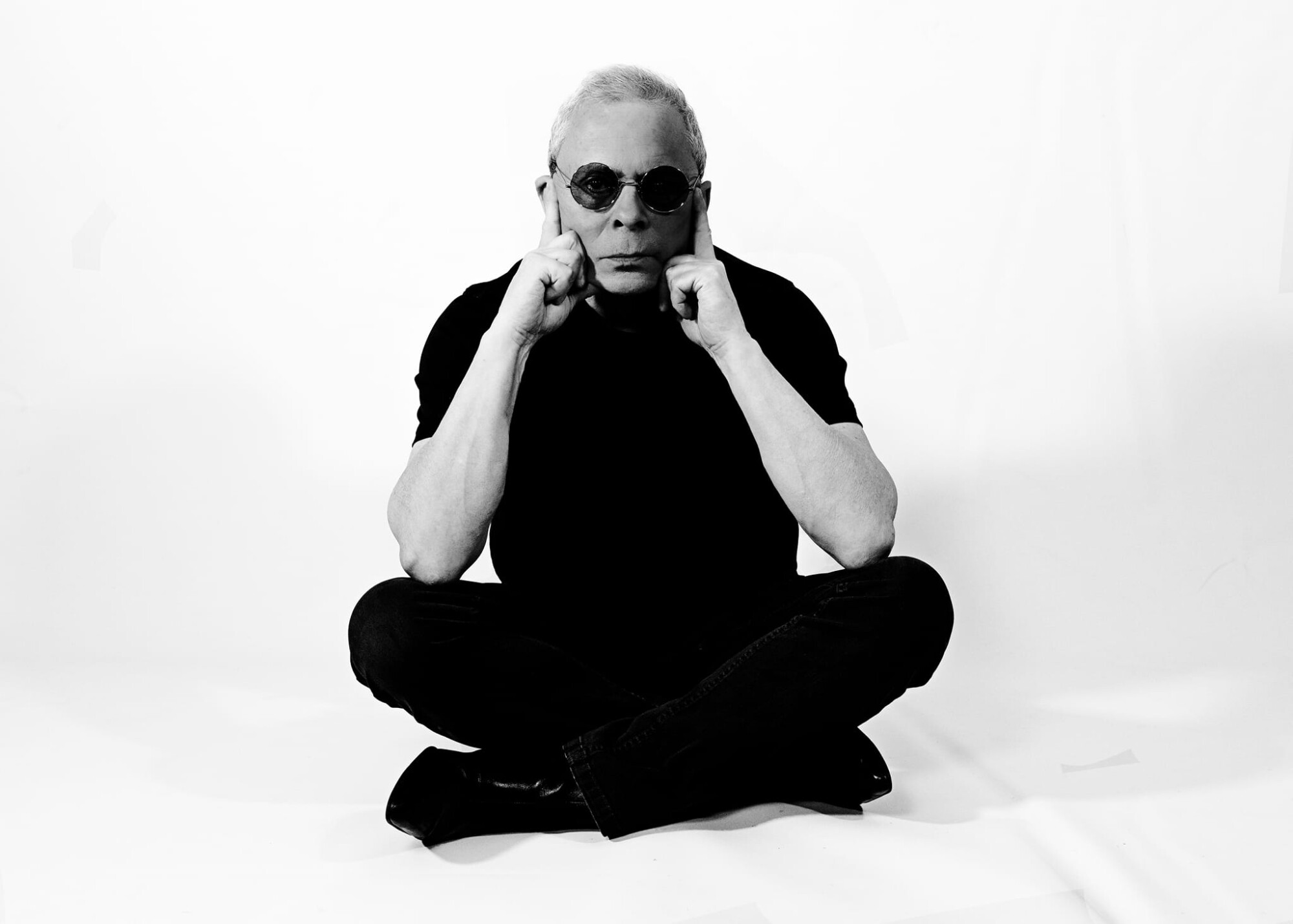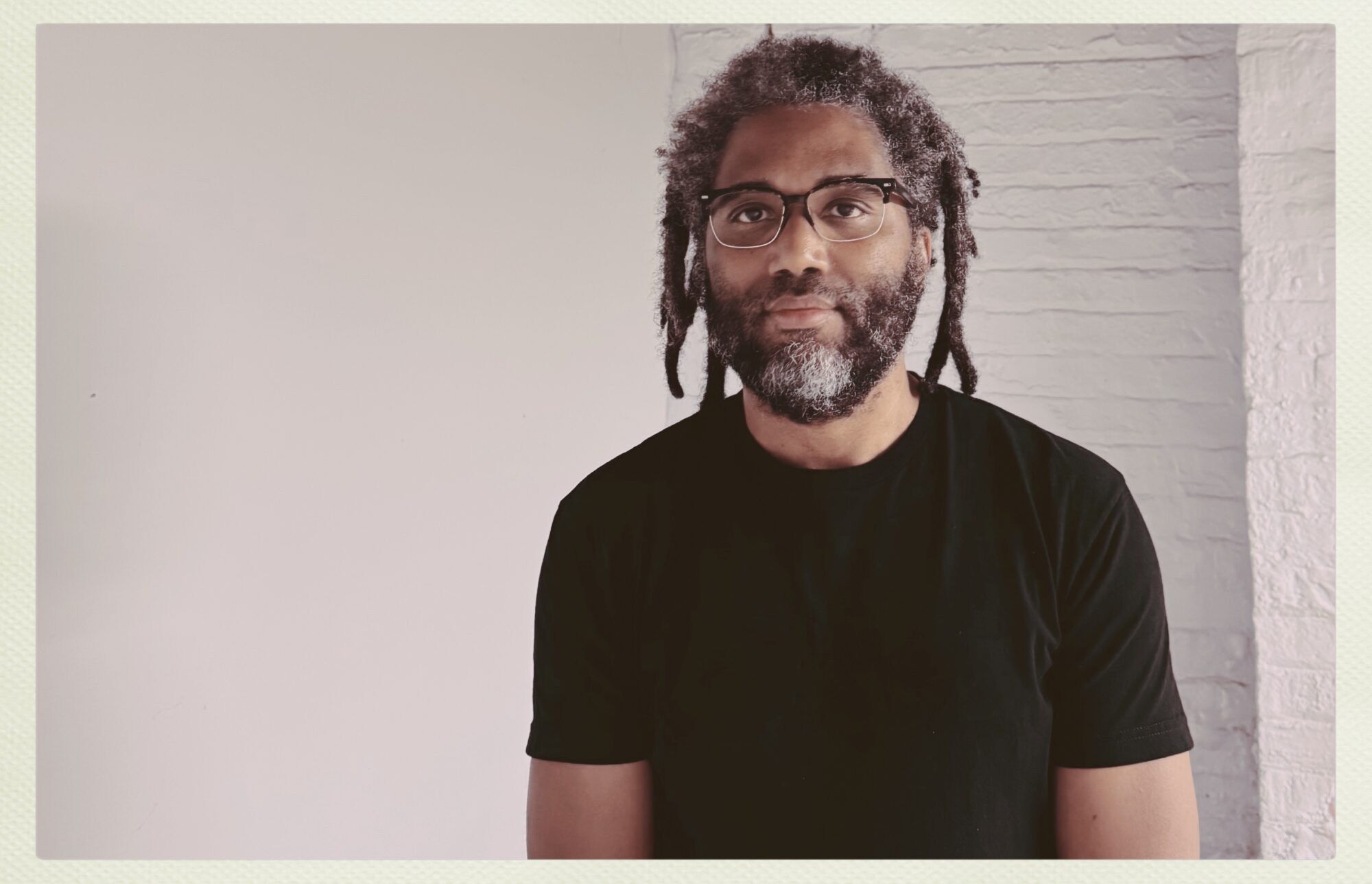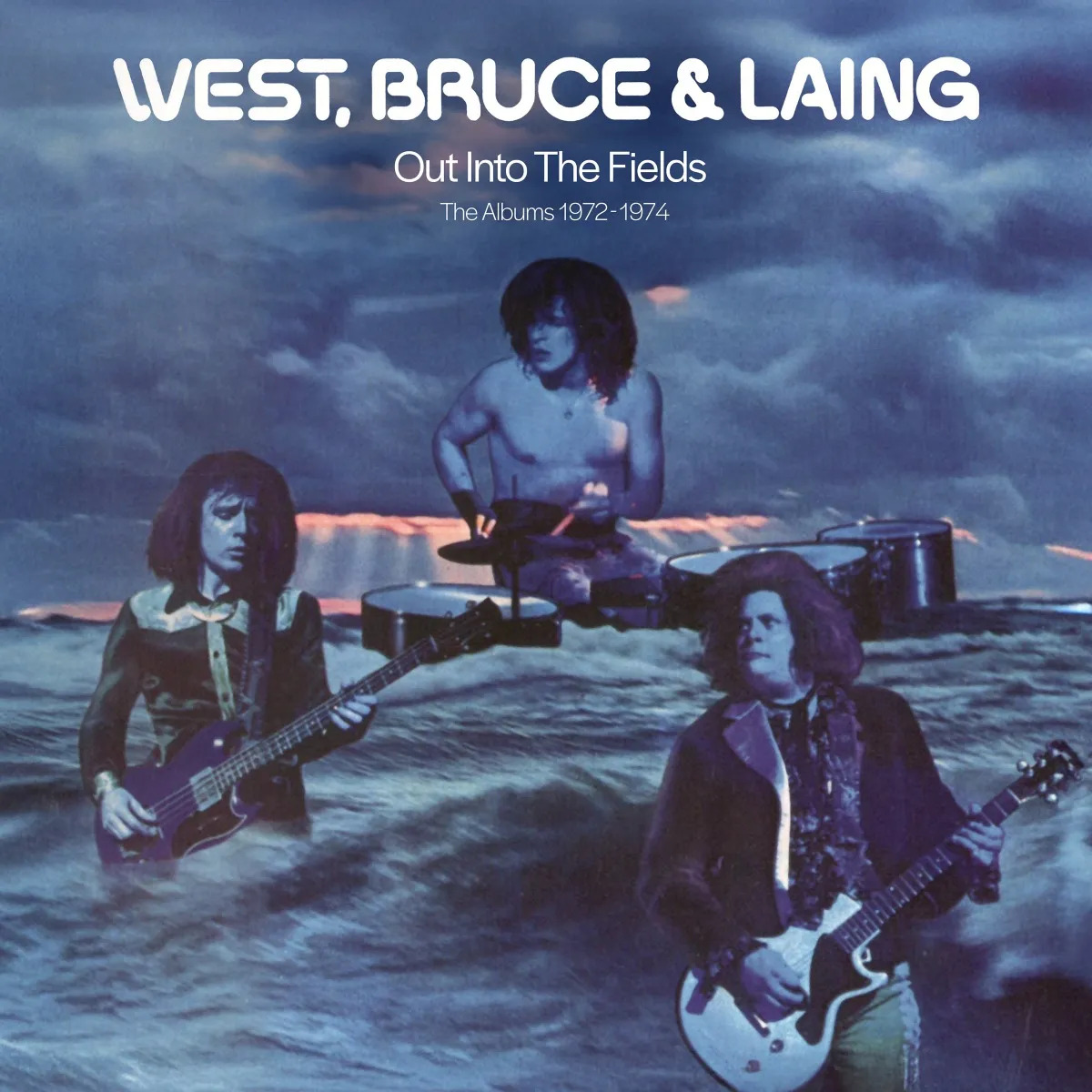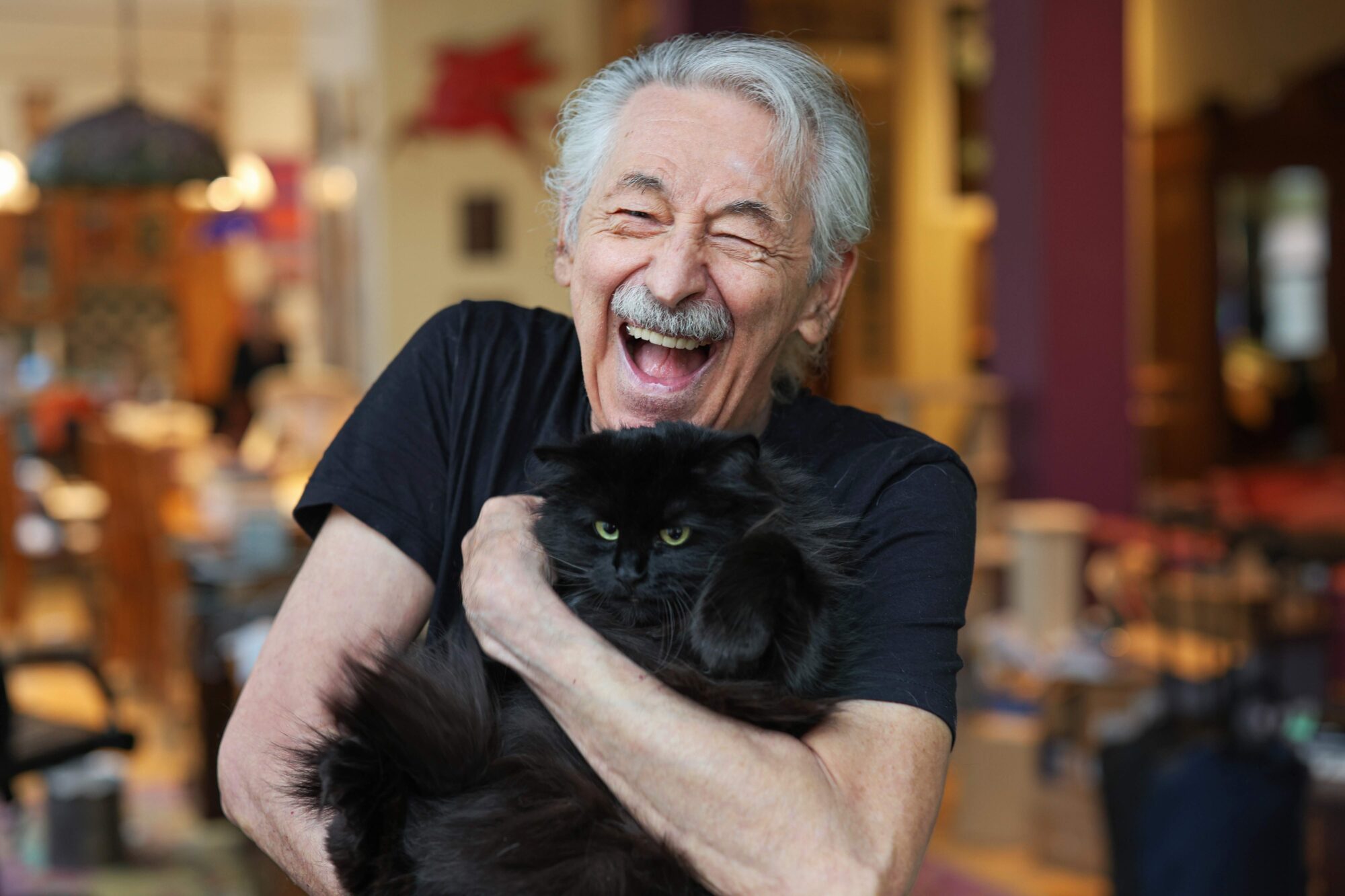Gav King | Interview | Debut Solo Album ‘Skeletons’
Nearly half a century after Gav King made his mark in Bristol, he’s made a surprising solo debut with his new album, ‘Skeletons,’ released through Heartbeat Records and Bristol Archive Records.
‘Skeletons’ marks a fresh chapter in his storied career. King was originally a member of the punk band Private Dicks, and this new album is a testament to his enduring musical legacy. With contributions from old friends like Paul Guiver and Neil Taylor, ‘Skeletons’ showcases Gav’s post-punk roots while adding new layers of depth and intensity. The eight-track album isn’t just a throwback to his punk days—it’s a candid exploration of the world as he sees it now, mixing edgy guitar riffs with haunting choruses. As he prepares for the album’s release, Gav King finds himself in a unique position: a veteran punk rocker embarking on a new solo journey, with a story that’s as compelling as the music itself. Keep an eye out for ‘Skeletons’—it’s an album that promises to be as intriguing as the man who made it.
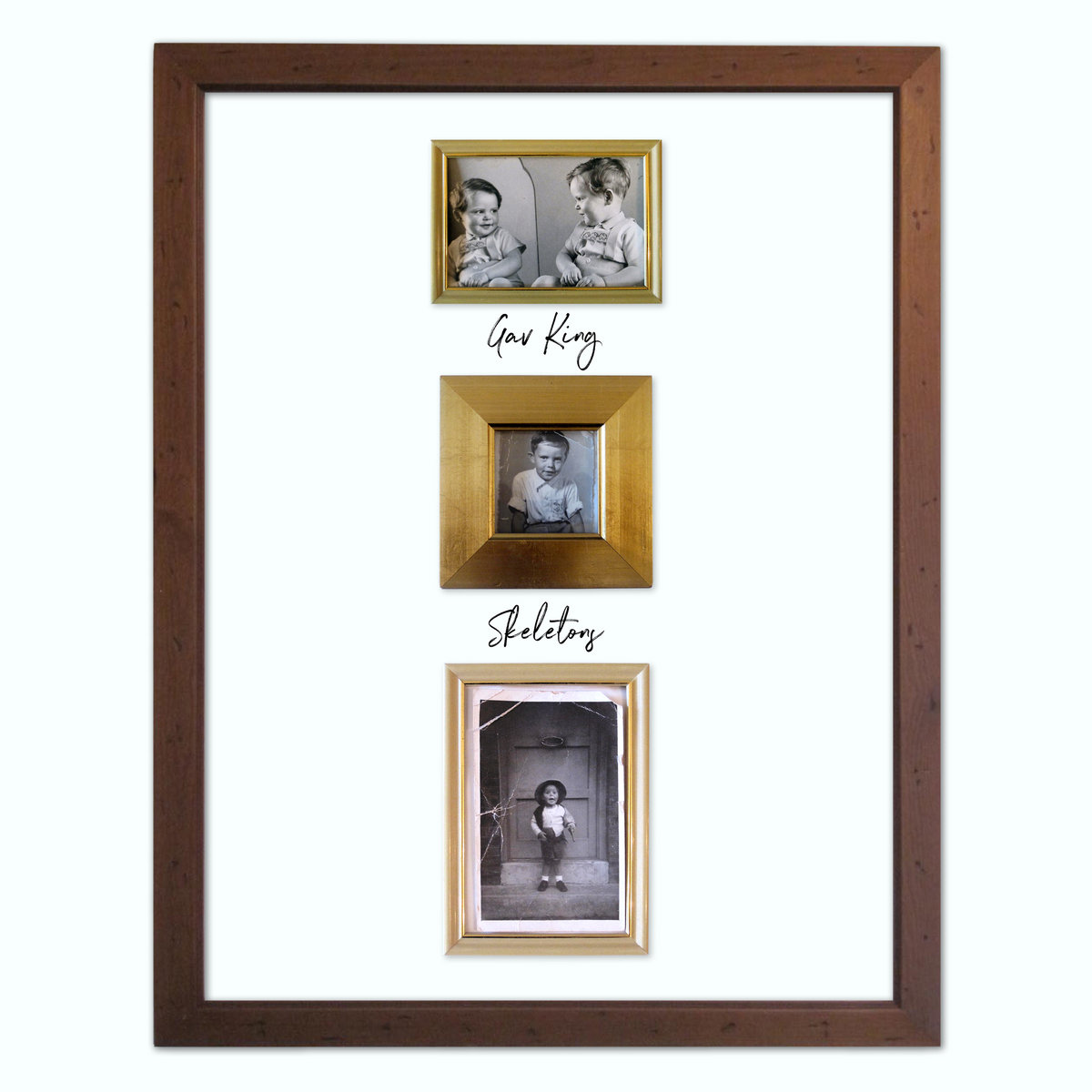
“Each song will have a place on its own merit”
Your upcoming solo album, ‘Skeletons,’ is described as a reflection of your life experiences and observations. Could you delve deeper into the themes and inspirations behind it?
Gav King: As someone who suffers from a terminal case of verbal diarrhea and has stories to tell, I’ve often been asked to put these down in book form. My protests that I am not an author tended to fall on deaf ears. After writing ‘Blood and Blues,’ the story of my older brother’s Mod days and his untimely demise, I realized that perhaps this was a way of chronicling my life. Reaching a certain age seems to bring about reflection, and suddenly I had a focus. Identifying the moments to relate was, on the one hand, easy, and on the other hand, elusive.
For example, ‘Profiled,’ which is about a movie where my personal construct was hijacked for a comedic film character, is a case in point. ‘Skeletons,’ the album, was finished when I was answering the call of nature late at night, and the word “Profiled” popped into my head. It suddenly dawned on me that a significant story had been overlooked. I took a pen to paper and wrote the lyrics within 15 minutes, then I went back to bed. The next morning, I read what I had written and realized I needed to create music for it. Neil Taylor, the producer, soon turned it into something that had to be included in ‘Skeletons,’ and so it was. This reflection into the past emerged from a recent incident.
However, ‘Infants’ Weight Card’ is about the first six months of my life and my mother’s struggle to cope with a third child. The inspiration for this came from finding my actual weight card among my late mother’s belongings. It told a story of struggle and survival.
With Private Dicks releasing a live album, how did you balance the solo project with your band commitments? How did Paul Guiver and Neil Taylor’s collaborations influence the sound and direction of the solo album?
Time difference. ‘Private Dicks Live at The Wild at Heart Berlin’ was a lockdown project. Paul Guiver and I were discussing how to pass the time constructively. I casually mentioned the live recording from 2013, but Paul said it had so much missing (the club refunded our fee) that he had only listened to it once. With me, as it happened. I reminded him there was one track that might be recoverable. Paul, who has his own studio as a post-production engineer, said he would have a listen but wasn’t hopeful. He got back to me and said he had managed to salvage one track. It sounded good. Perhaps he would try to salvage another. Long story short, lockdown proved an opportune moment… for us, at least.
Regarding the solo album, Paul, being the best mate a man could have, was concerned about my legacy as a vocalist. He worried that I would be remembered, if at all, as the screeching rocker of 1979. He insisted I had another story to tell vocally. He persuaded me to spend three days with him recording in Simon Scardinelli’s studio in Brighton in 2018. It was just Paul’s acoustic guitar, my voice, and our songs in an acoustic setting. I always have songs ready to record or in progress, and by 2023, it appeared he would have time from September to start work on the as-yet-untitled solo album. So, while waiting, I finished and created newer songs.
Paul managed to do a version of ‘I Really Care,’ which we had written in 2000, as a low-fi, late-night delight. Neil Taylor, upon hearing it, asked if he could produce a version and turned it into a stunning rock ballad with a killer solo on the outro. Then, Paul suddenly had a huge offer to work on another project and took it upon himself to ask Neil to take over production duties. I sent Neil some demos of new songs, and ‘Blood and Blues’ got the ball rolling.
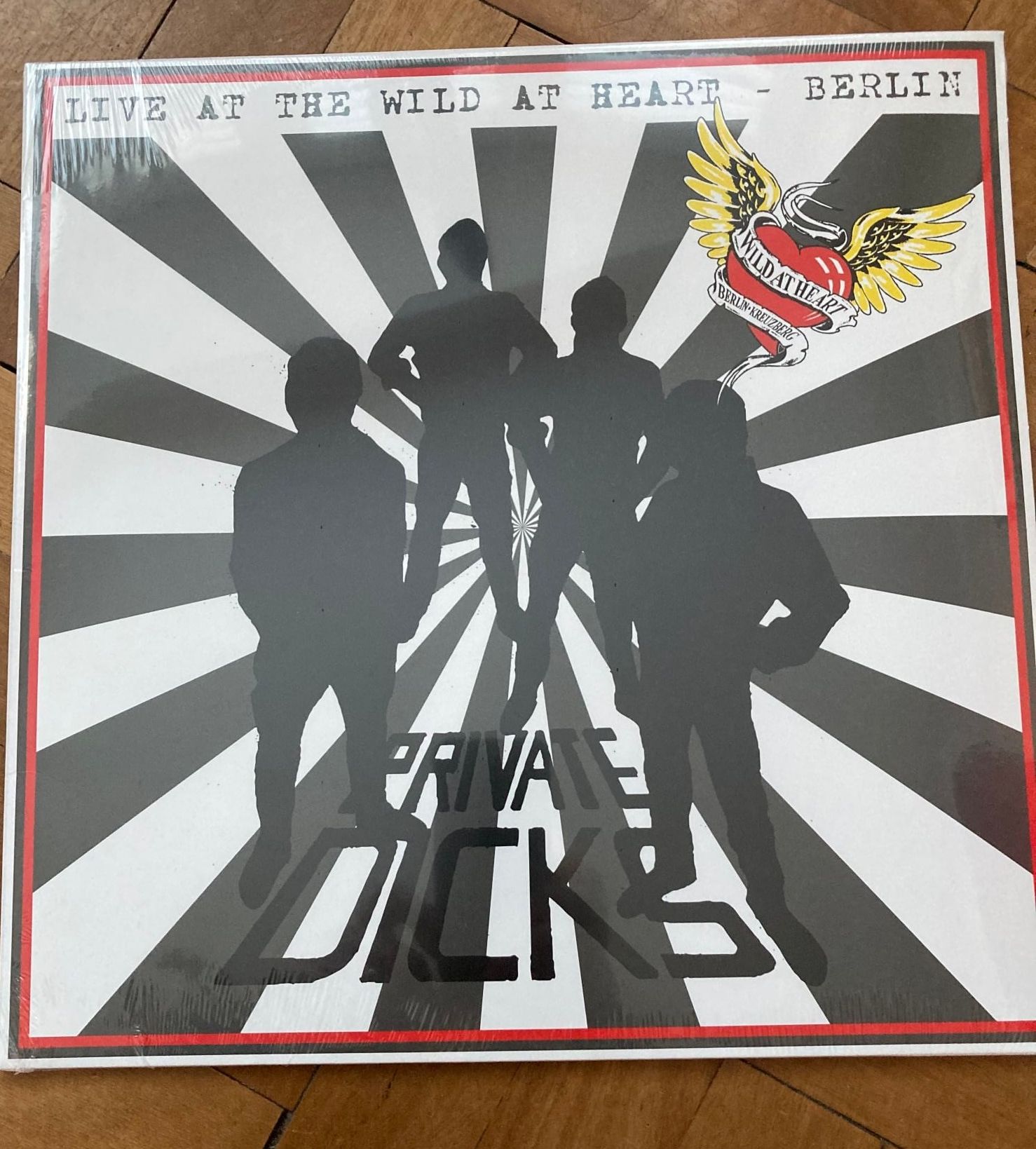
Can you tell us about the creative process behind “Skeletons”? How did you approach songwriting for this solo project compared to your work with Private Dicks?
Private Dicks was written in the stone age. Acoustic guitar, beer, joints, and late nights—none recorded. Memory and a written lyric were the only ways of remembering. Lyrically, it was mostly tales of broken romances—I was in my mid-20s—but there were signs of the eccentricity that would appear on ‘Skeletons’. For instance, ‘You Want It You Got It’ was inspired by the television interview that took place between David Frost and Richard Nixon around that time. I was and still am a bit of a political animal. ‘Five Star Freezing,’ a bit of a forgotten gem, is about cryogenics—the best fridges then were four stars, so cryogenics must be five-star—and the rumors of Walt Disney having his head frozen so that in the future, it could be defrosted and attached to some robotic entity. Not so far-fetched as it turns out. The song is Walt defending his decision to have the procedure: “If I’ve got the money, I can do what I like… it’s f-f-freezing… going on the ice today, going on the ice today, five-star me.” Now, all the songs back then and the pace they were played at were punk-inspired, but they came together better formed after we had heard Elvis Costello’s debut album—a big inspiration.
Songs for ‘Skeletons’ were constructed almost entirely as pieces of instrumental music I put together with samples from an old software program called Dance EJay. Once I had completed one, I would do another. Sometimes I felt a track had song potential, so I would trawl through my myriad of notebooks full of lyrics and scrap pieces of paper. Most days, a lyric would come to me, so I would note it down. Going through the lyric “library,” I would find a few I thought would fit, and when I had decided, I would work the lyric into the song.
Both 1979 and 2023 were, however, driven by the same influence—’60s singles, three minutes, hooks, chorus, intro and outro, bridges, and middle eights. I honestly could not be intellectual in my writing, even if some of my lyrics seem rather strange at times. Lyrically, 2023 was obviously a different proposition. I left broken hearts back in 2009, so inspiration has come in many forms: TV programs, like Painkiller and Twin Peaks (very now, eh?), and phrases from books, like ‘Time,’ the anthemic opening track on Side Two of ‘Skeletons,’ which was taken from The History of Mr. Polly by H.G. Wells. I am an odd little creature.
Looking ahead, what are your hopes and expectations for the release of ‘Skeletons’ and your future endeavors as a solo artist, as well as with Private Dicks?
For it to be heard. I’ve never expected to sell records, and I’m not going to start now. I hope people can see that I can be a “singer” as well as a belter (as Shirley Bassey once said). I want the lyrics to be seen as at least not crass or pretentious, but I’m not holding my breath. I already have the follow-up album recorded and ready to go, so perhaps January 2025—if we’re all still here. It won’t be made up of songs not good enough for ‘Skeletons’; each song will have a place on its own merit. The title is ‘Every Scar Is Mine,’ with the title track, like ‘Skeletons,’ ending the album. The song was inspired by a program I saw about emigrants and Ellis Island, and also the sculpture “The Traveller”. Take a look; it’s awesome.
As for The Dicks, we never say never. Our February 2024 UK Tour was such a success, I wouldn’t bet on us not doing it again. Before that, we have a spot in August at the Rebellion Punk Festival (we’re not punk, but punk-inspired allows us leeway), and there’s talk of a new single, ‘Negativity,’ as well as a couple of dates in NYC (though these things have been suggested many times before).
Would you like to share about your upbringing? Where did you all grow up? Tell us about daily life back in your teenage years.
I was born in the beautiful hilly town of Malvern in Worcestershire, where my parents settled after the war. Dad was an apprentice at the Morgan Car Factory as a panel beater, and Mum started out as a Tweeny (look it up… think “Downton Abbey”). Dad was a Dunkirk veteran—his rescue little ship was Sundowner, which was featured in the film “Dunkirk”—and he was also a D-Day veteran. I was born the third child of three and was diagnosed with asthma at the age of two. I was very ill much of the time until puberty with chronic bronchitis, which caused me to miss a lot of school. I wrote my first song when I was five, inspired by Lonnie Donegan and the Skiffle boom, and I can still remember it. I sang before I could talk, and my mother would often show me off, which explains a great deal.
It was deemed prudent for me to join a choir, as singing would help my lung capacity and improve my breathing, so I joined the Malvern Priory Choir—a paid position, no less, and no girls allowed. We rehearsed on Monday, Wednesday, and Friday evenings, Saturday morning, and performed twice for Sunday services, along with weddings and funerals (5 shillings a head for those beauties—a lot for a seven-year-old back then). I hated every moment, but it did give me a great foundation and taught me to harmonize.
I joined my first band, which was made up of Special Policemen, at 16, my first rock band at 18, and formed my own progressive band in 1970, then left for the big smoke aged 21. I was on the Pub Rock circuit at that time, but by the time punk came around, I had moved to Bristol to join a jazz-funk outfit, which included Helen O’Hara from Dexy’s Midnight Runners. Then came Private Dicks, followed by marriage, two more bands, children, and university to study History in Cardiff. Then I joined the family business, until the advent of broadband and the Private Dicks resurrection. Amen.
If we were to step into your teenage room, what kind of records, fanzines, posters, etc., would we find there?
Teenage room? Lulu in a mini skirt. Tissues. Manchester United. Stones. A load of Tamla Motown and Stax records. Later, Beefheart, Joni Mitchell, YES, and Family, and more Joni Mitchell. Loads and loads of books. I probably never read too many—I was always out—but I loved having them around me. Still do.
Can you share some words about Uncle Po and the single you released with the band?
Uncle Po was probably the best band, musician-wise, I’ve been in (The Dicks obviously being the love of my life). I didn’t have a clue how widely we were respected. Only a lack of direction and decent songs held us back. A six-piece with four-part harmonies—a great time. The single came about as the outcome of us winning a contest on the BBC in 1976. It was literally at the time punk was breaking through, and by the time we came to make the single ‘Use My Friends’—originally called “(Wanna Get Me Back x3) Just Screw My Friends (Babe)”—we had seen the light. Although we weren’t punk, we were more like bands such as Squeeze and became fellow travelers. The single was recorded in London at the BBC studios, produced by a moronic DJ who never once spoke or looked up from the pornographic magazines he had surrounded himself with. We got the feeling he was there under sufferance. The greatest claim to fame we can make for it was that all the promotion money was spent on Ennio Morricone, a labelmate.
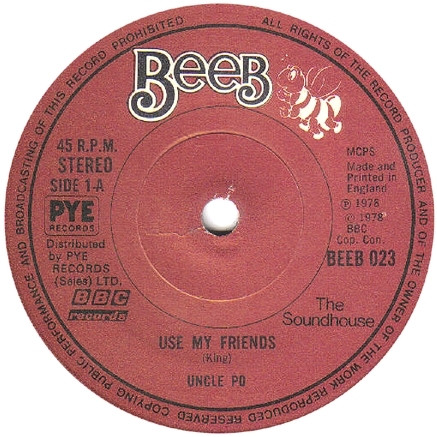
Elaborate on the formation of Private Dicks?
After Uncle Po, I started looking for people to form a band with. I met a very stoned Paul Guiver one night and, without much enthusiasm, invited him round to my flat. As it turns out, it was a lucky meeting—we’ve been partners now for 45 years, much longer than I was with my wife. That night, we actually wrote ‘She Said Go,’ which became our debut single. However, we still needed a guitarist, and one night at a place called Crockers in Bristol, I saw this phenomenal 16-year-old guitarist. I asked the white-haired old man next to me if he knew who the guitar prodigy was, and he replied that the lad was actually his son. I gave him my telephone number, and he came round to my place to meet Paul. Although they got on well enough, he declined our offer to form a band, as he had his own plans. The git. So Neil Taylor went off… wonder what happened to him.
Paul and I kept looking, and the girlfriend of Uncle Po’s drummer mentioned that her brother and his mate had a band that might be interested in hooking up. However, they were 16 and 17 years old and very wild, punkish young lads. We were, however, very impressed with them and asked them to a rehearsal. They had their own guitarist who came with them, and so we were a five-piece but without a name. For six months, we rehearsed in Uncle Po’s old rehearsal studio, not really getting anywhere with sub-Siouxsie and the Banshees-type stuff. The guitarist left, and we wondered what to do. Then Paul said, “We have a song called ‘She Said Go,’ shall we try that?” Twenty minutes later, we had our first single.
“No, I’m a Private Dick.”
What inspired the band’s name?
Still looking for a name, and under the influence of illegal substances, we were watching a film noir with Bogart. His character goes into a summer room where a precocious young lady asks him if he’s a cop. He replies, “No, I’m a Private Dick.” And that was that. The B-side of our single, the self-titled ‘Private Dicks,’ confuses people who don’t know about film noir. In his next movie, Bogie meets Lauren Bacall, and as she’s leaving after some heavy flirting, she says, “If you want me, just whistle… you know how to whistle, don’t you, Steve? You just put your lips together and blow.” So it’s a disappointment to all the people who snigger when told the name of the band because they think it’s smutty. Kids!!
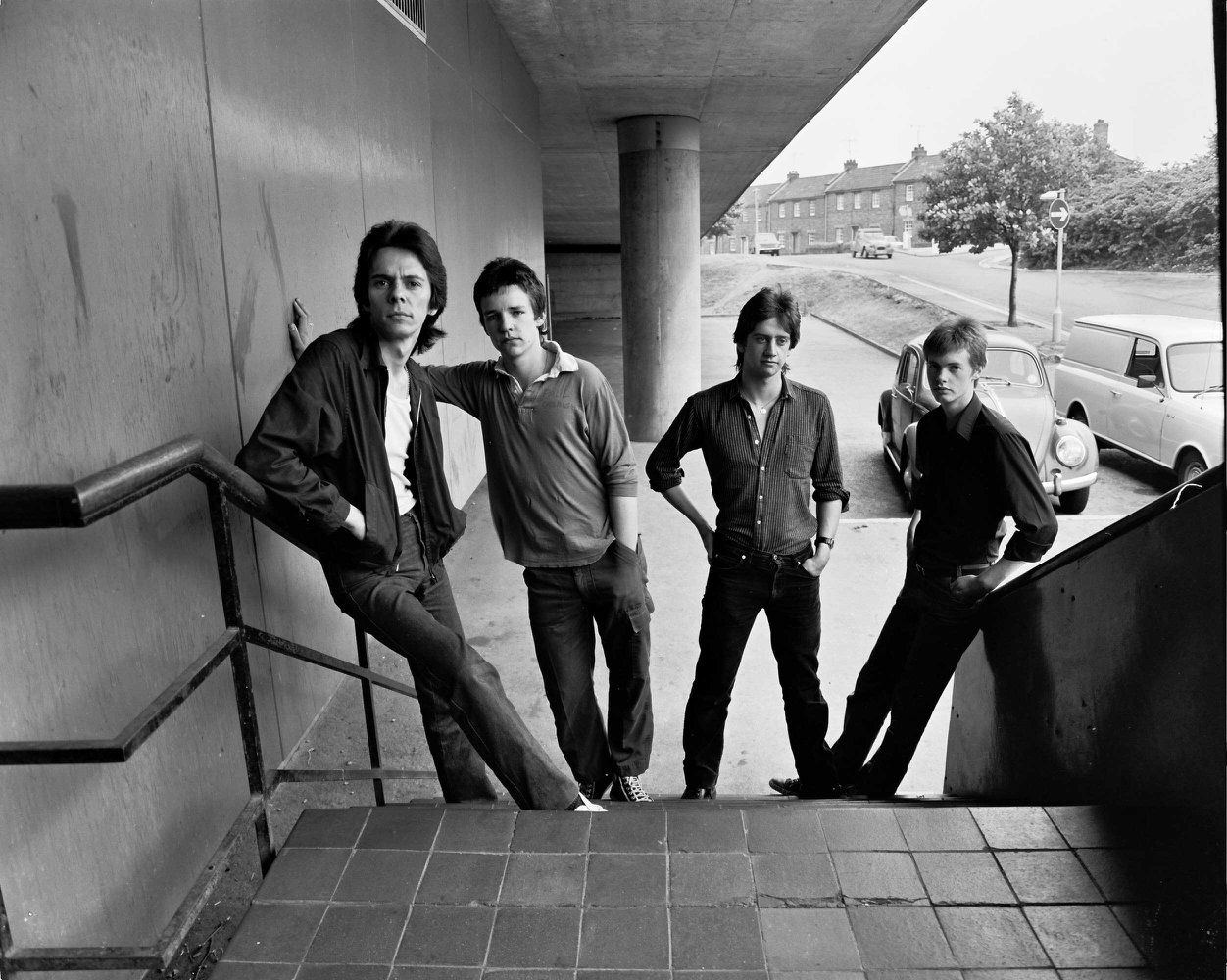
It would be fantastic if you could recall the making of ‘Homelife.’
I think it’s best to answer this by saying it never actually existed, at least not in the traditional sense. All we had until 2005 was a collection of demos recorded mostly at Sound Conception in Bristol by engineer Kenny Wheeler. It was thanks to Nobu of 1977 Records in Japan that the individual pieces were brought together to form a complete album. With the advent of broadband, I was slowly finding brief mentions of Private Dicks, which, to be honest, was immensely satisfying. We were remembered in some dark corners? Great stuff. Then Nobu reached out, asking if he could reissue our debut single, ‘She Said Go,’ originally released on Heartbeat Records in the UK, on vinyl in Japan.
Now, it pains me to admit that I can’t remember if I asked Heartbeat supremo Simon Edwards for permission or not. The fact that he invited us to play his launch party for the release of his famous sampler album ‘Avon Calling’ on CD would suggest that we did. If not, I can only plead sheer exuberance at something miraculous happening. Our single, out in Japan? Party time! The reissue was obviously a success because Nobu then asked if he could release our album on CD in Japan. Being the typical smooth talker, I said, “Of course.” I would get Paul to send the tracks over. Cue much frantic activity to create ‘Homelife,’ the album, in record time. Luckily, with Paul, we had someone who could do all the hard work, and to be honest, as I write this in 2024, that is still the case. The amount of hours Paul has put in while the rest of us mostly sat on our arses is incredible. However, as Paul said himself, it was a labor of love. Little did he know how much that love would be tested over the next nine years or so… and still is, to be frank.
The album itself is of varying quality recording-wise, from eight-track recordings done in a few hours to the awesome BBC recording of ‘Don’t Follow My Lead,’ which demonstrates just how powerful the band was at this time and how powerful the ‘real’ album would have sounded. Indeed, it was supposed to be issued as a single by Simon and Heartbeat as a follow-up to ‘She Said Go,’ backed by ‘You Want It, You Got It’. It had been given a catalog number and was listed as such in ZigZag Magazine. However, that was swiftly quashed by our new manager, the infamous Mark Dean, a decision that we have many regrets about. Again, I have no memory of the conversations about that course of action, and I can only imagine that it didn’t cause much commotion because Simon Edwards is one of the nicest and gentlest folks you could wish to meet. And he still is, as he prepares to launch my solo album, ‘Skeletons,’ on heavy-duty vinyl with a gatefold sleeve and his best wishes.
To finish, suffice it to say that ‘Homelife’ did so well in Japan that Nobu came back asking for a live album, but that, as they say, is another story.
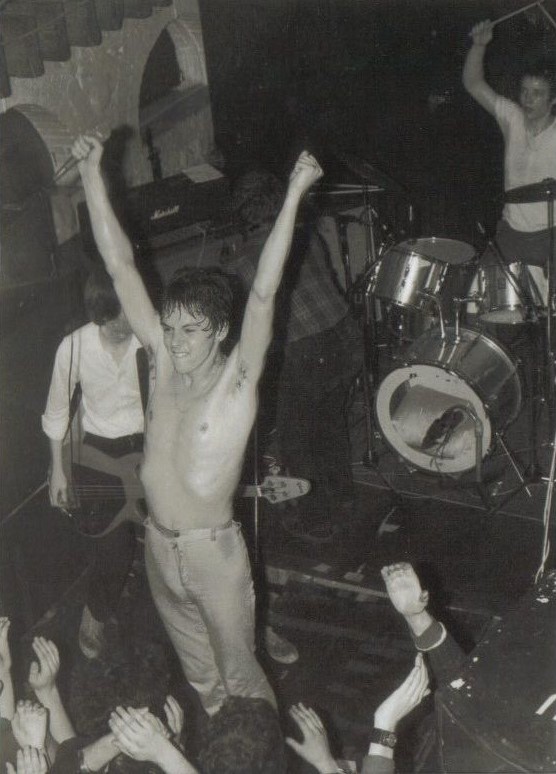
What would be the craziest gig you ever did?
Well, initially, we played most of our early gigs at The Crown Cellar Bar, Bristol, weekly during the autumn of 1979. It was a small venue with a packed, writhing crowd right in our faces. We were the kiddies back then, as they say here in Bristol. It wasn’t without its dangers, though. Some people—mostly hairy bikers—came to vent their hate at this bunch of Johnny Come Latelys. One memorable night, one of them took a swing at me, I dodged the punch, and unfortunately, his momentum carried the punch straight into the face of our bass player’s sister. Without a moment’s hesitation, and in one motion, young Shugs released his Gibson Grabber bass and smashed the guy over the head with it. Down went the guy, and mayhem ensued. Ah, happy days.
There was the time I took my trousers off in the dressing room at a gig supporting Toyah Wilcox, which meant I was standing naked in front of her… underwear was not part of my ensemble at this time. On another occasion, we broke the stage at the legendary Bristol Club, The Granary, at what was, at the time, the best gig we had ever played.
There were also gigs where our manager put us on the same bill as the desperate mod bands that we were unfortunately lumped in with for a time. These were horrible gigs. The most memorable was us going on stage to a room full of saddos, hundreds of them, in their Parkers. They really offended me because my brother, of blessed memory, was The Face around Worcester, and I had my first bespoke mohair suit made in 1966. Anyway, the gig: we played for around 50 minutes to total silence, apart from Wogie, a mate who was roadying for us that night. He had positioned himself in the middle of these little kids and yelled and screamed at the end of every song. Now, I can honestly say, having seen the extreme violence the original Mods were capable of causing, these desperate little boys did nothing. NOTHING. The original Mods would have invaded the stage, beaten us up, and destroyed everything in their path. These monkeys just stood, slack-jawed, drooling, waiting for the Purple Hearts to come on. In an attempt to get some sort of rise out of them, we finished the last number and bared our arses at them. Still nothing. By this time, we were well pissed off and ready for a fight with our manager. We were in the Green Room changing when a chap poked his head around the door and asked if we had seen Mark Dean. “No, we fucking haven’t,” someone replied. I added, “If you see the cunt, tell him to get his arse in here; we’re gonna give him hell.” Five minutes later, the manager runs screaming into the room, accusing us of destroying his career. The guy, it turns out, was Bryan Morrisson, his big boss. And that, as they say, was really the end of Private Dicks. Spring 1980. All over in 12 months.
Now, the gigs we did from 2005 to 2013 were far more mature events, apart from the odd occasion such as when Sybs, our drummer, went missing in the middle of the night from where we were staying in Berlin. Missing without any footwear. The search for him, drunk as a skunk as he was, was captured in all its glory in our 30-minute documentary, “Exiles in Neverland,” available on YouTube. The bastard did it again two years later. After playing the Wild at Heart Berlin, a raucous party was held. We didn’t get to bed until five, which was rather unprofessional as we had a long drive at midday to the next gig in Hamburg. The next morning, we noticed that Sybs was missing… as was his sidekick, who had flown over from Canada especially to see us play that weekend. Midday came around. The support band, The Not Amused—hi guys—turned up in the van to go to Hamburg, but we said we couldn’t leave as we had to make sure Sybs and his sidekick were safe, not arrested or in hospital, which, to be frank, was a very real possibility. Long story short, we didn’t find them, and the Hamburg gig was carried out by The Not Amused. It was only on Sunday morning that we heard from Kidnap of The Not Amused that they were sitting on a beach in Hamburg, and Sybs and his sidekick were sitting with them. Apparently, they had gotten lost after the Berlin gig, kept on drinking, and when we hadn’t found them, they took a train to Hamburg. However, they fell asleep on the train, and when it stopped, they thought they were in Hamburg. It turned out, however, that they were in the suburbs of Berlin. So, as you would, they got a taxi to Hamburg, arriving just as The Not Amused were leaving the club. That, I think, gives you enough flavor of our professionalism. Enough nostalgia for now.
Was there a certain scene you were part of? Maybe you had some favorite hangout places? Did you attend a lot of gigs back then?
Interesting question. As I have previously mentioned, we got caught up in what John Lydon called “this desperate time.” First, there was Punk. Then, as that was dying, the music press/record industry invented New Wave, which I thought we belonged to. However, by the time we got our act together, the bastards had already moved on to Power Pop (aaagggghhhh!!) and then Mod (double aaaaagggghhh!!!). Meanwhile, the bible that was the NME had created Post-Punk, which was followed by people in strange mackintoshes with what looked like poodles on their heads and their industrial punk-funk, industrial-depressing John Peel-backed darkness. Then, of course, came The New Romantics. So no, we didn’t fit anywhere.
Bristol, being Bristol, developed a very arty-based genre amongst the deep dub of St Pauls—of blessed 1981 Riot Fame—which led to Massive Attack et al. Our home gig-wise was The Crown Cellar Bar, while our recreational outlets were The Kenny, a pub of blessed memory for so many, and The Dug Out, a club of blessed memory for so many more. Ah, what a time to be relatively young.
Gig-wise, I’ve never really been a fan of going to watch other bands, as I tend to find it impossible not to watch them from a professional standpoint rather than just enjoying the gig for itself. This is a trait which annoyed the fuck out of those who were there to enjoy themselves. My bad. Two gigs do stand out. One Sunday night, we got to see The Clash. The next night, The Jam. The Jam blew The Clash off the stage. I say that as someone who thinks The Clash’s debut album is one of the best debut albums of all time. But The Jam? What a powerhouse they were.
Looking back at your journey with Private Dicks and your experiences in the punk scene of the late seventies, what were some of the most memorable moments for you as a band?
As I’ve said, I wasn’t part of the punk scene, but I was in and around it—a fellow traveler, if you like. Only Shugs and Sybs were young enough to have partaken. Joe Strummer, it must be remembered, was the same age as me and had also been on the pub rock circuit as I had in the early seventies. Certain artistic poseurs have labeled me a reformed pub rocker with a skinny tie. Funny how Joe Strummer was allowed to get away with it. The most memorable gigs for us have been since 2005, and that has been a wonderful gift to have been granted.
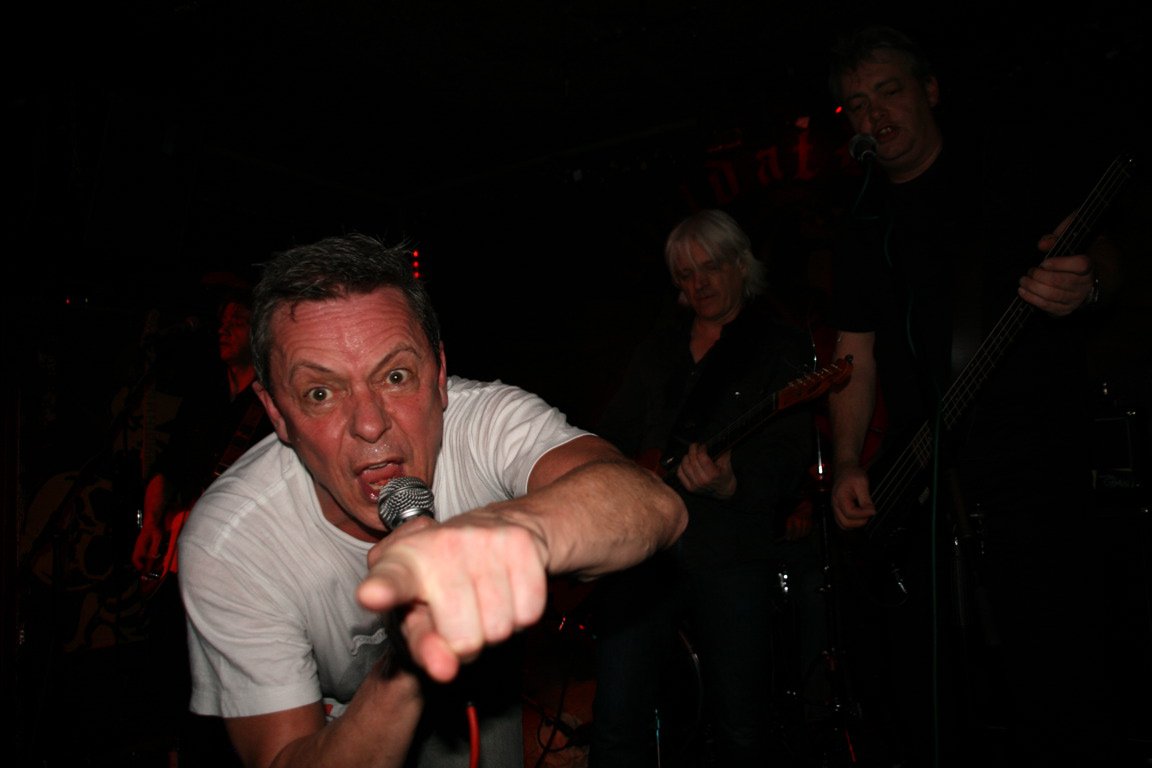
What else currently occupies your life?
From getting married in 1982 to getting divorced in 2009, my life was that of a family man, at which I wasn’t the best, often feeling like a caged beast, with the resulting darkness. I have apologized to my children for that, and I bless the gift of longevity that means I have experienced the joy of grandchildren. Long may it continue. Having been living alone since 2016, I’ve come to realize that is my natural state. At least that’s what my cat says. It means I can eat, drink, and watch what I want, and write whenever the mood strikes me. I have come to the conclusion that I am a terribly selfish bastard who has been given a second punt at having a life. I appreciate that gift and will continue to as long as the wine lasts. Thanks for asking, and remember, “Insanity is sanity in an unhealthy world” (R. D. Laing).
Klemen Breznikar
Gav King Bandcamp
Private Dicks Facebook
Bristol Archive Records Official Website / Facebook / Twitter / Bandcamp / YouTube

